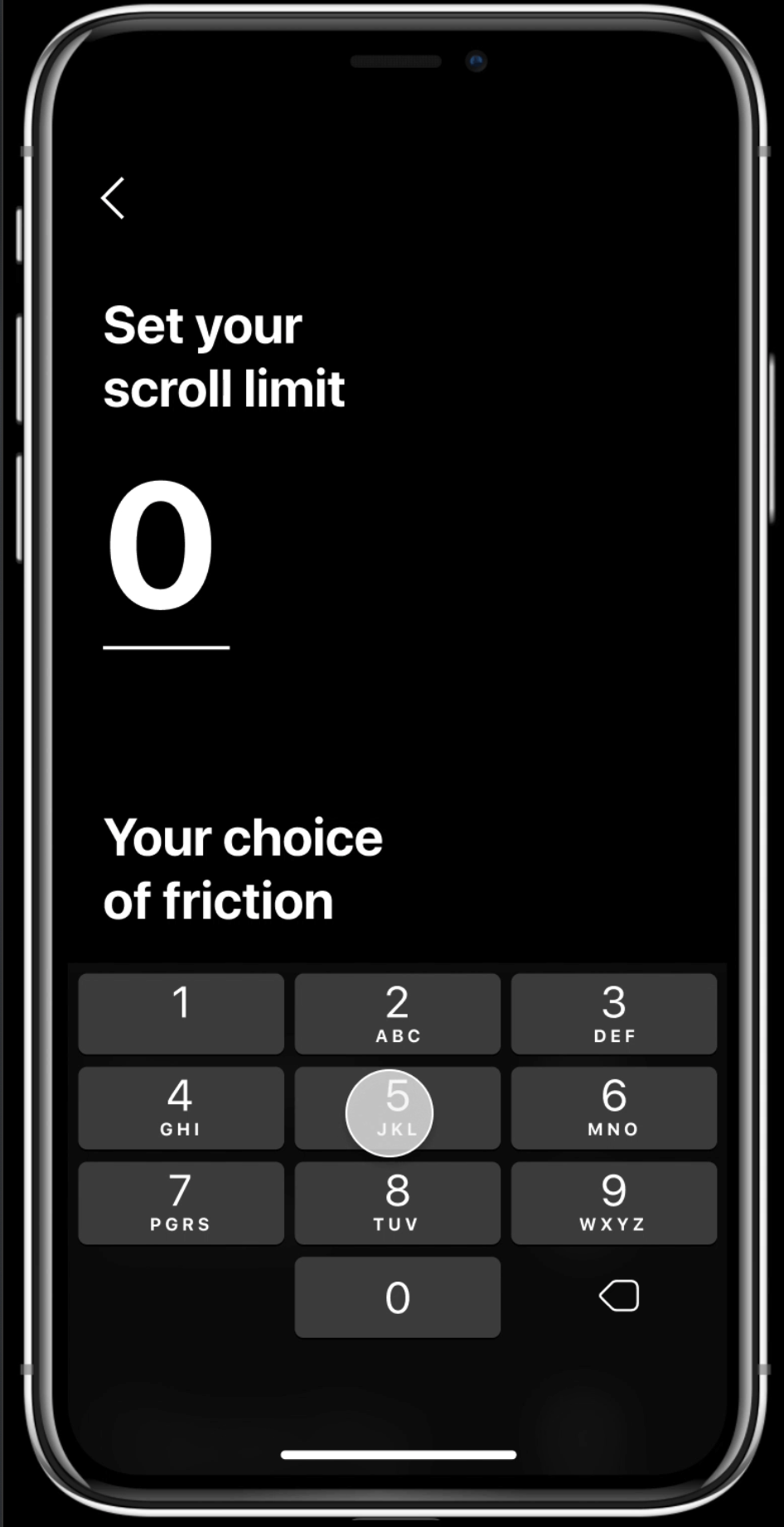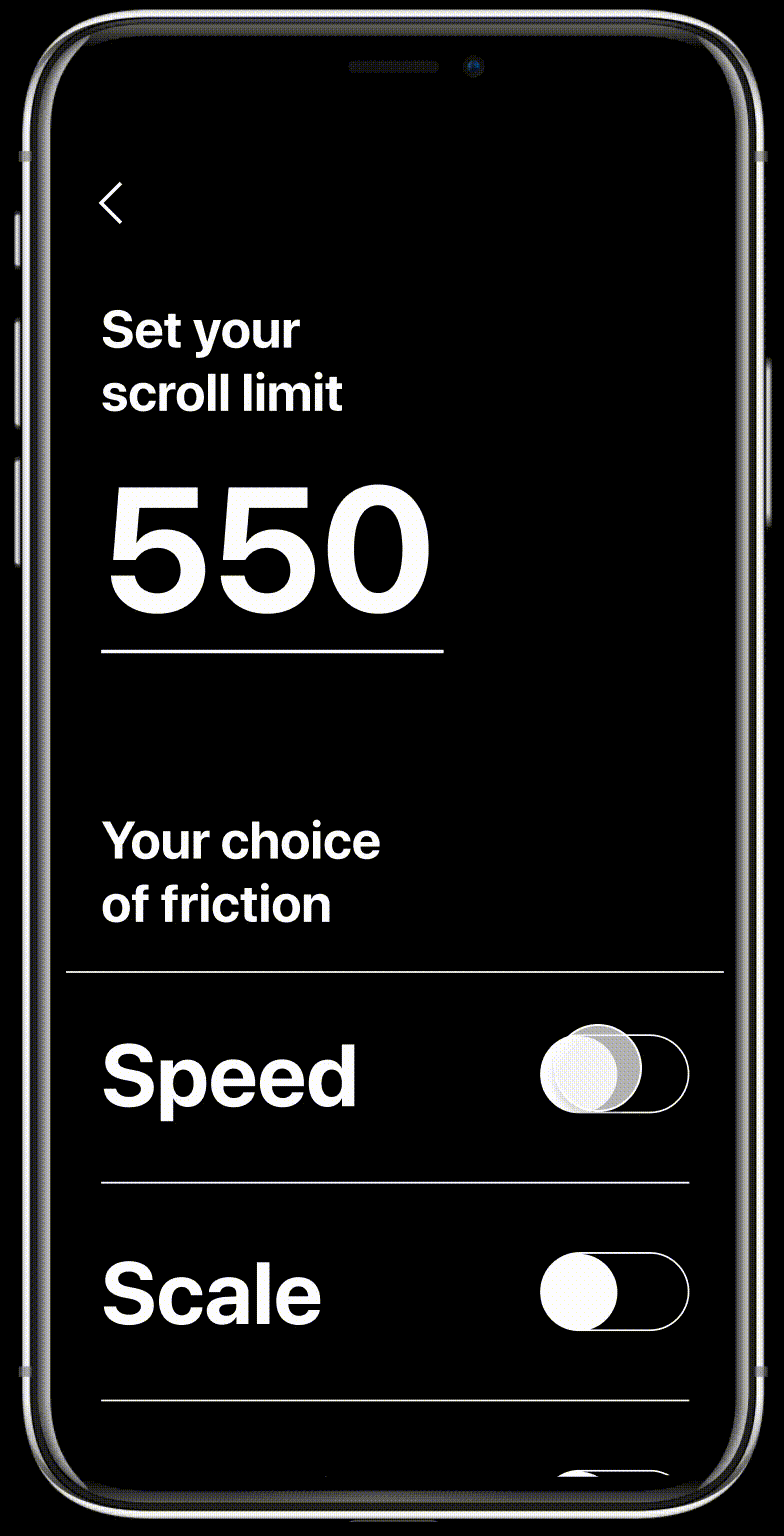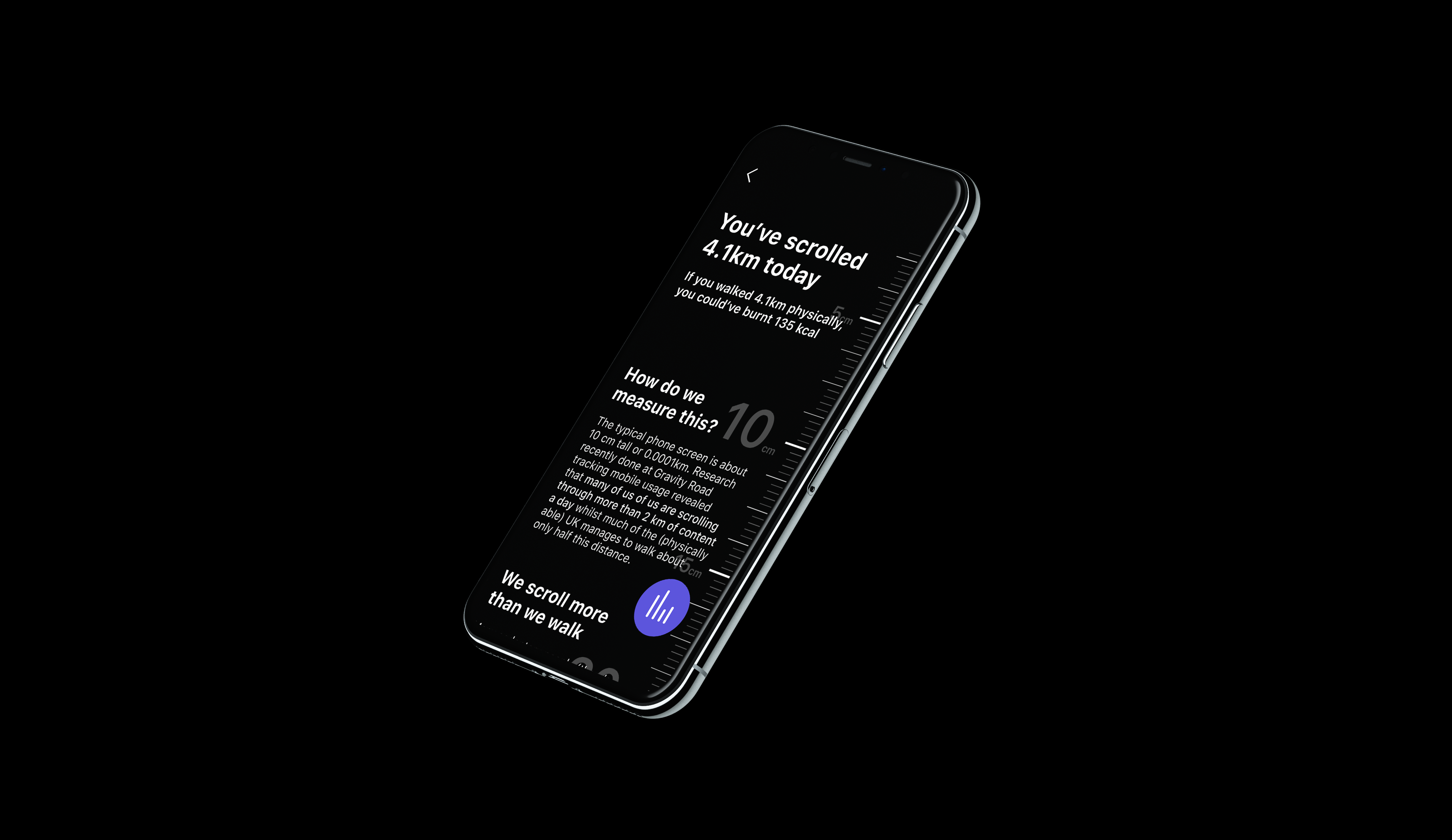
Finite Scroll App
We help you control your scroll to spend less time on social media.
We help you control your scroll to spend less time on social media.
By adding friction to your scroll.
The Challenge
People are getting more addicted to social media because of the infinite scroll that produces an endless stream of content, pre-defined and perfectly tailored to the user experience via an algorithmcan never reach the bottom of their feed.
The Outcome
A plugin for social media apps will help users recognize their addiction and control their scrolling by adding friction to the scrolling process.
People are getting more addicted to social media because of the infinite scroll that produces an endless stream of content, pre-defined and perfectly tailored to the user experience via an algorithmcan never reach the bottom of their feed.
The Outcome
A plugin for social media apps will help users recognize their addiction and control their scrolling by adding friction to the scrolling process.
How it works
1.
![]()
Find finite scroll plugin from your social media2.
![]()
Set your desired scroll limit3.
![]()
Select your frictionApplied friction
Speed
![]()

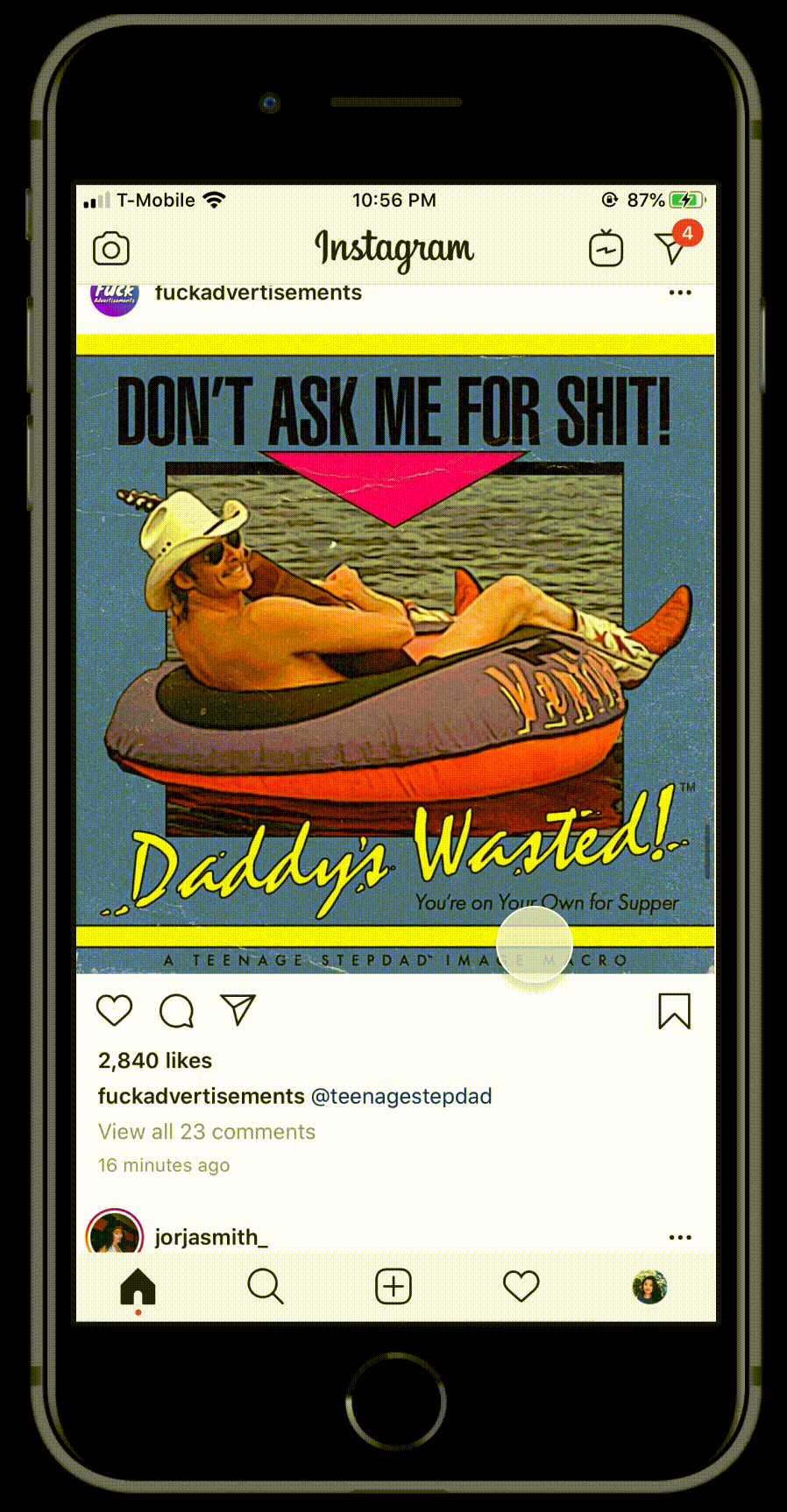
Opacity

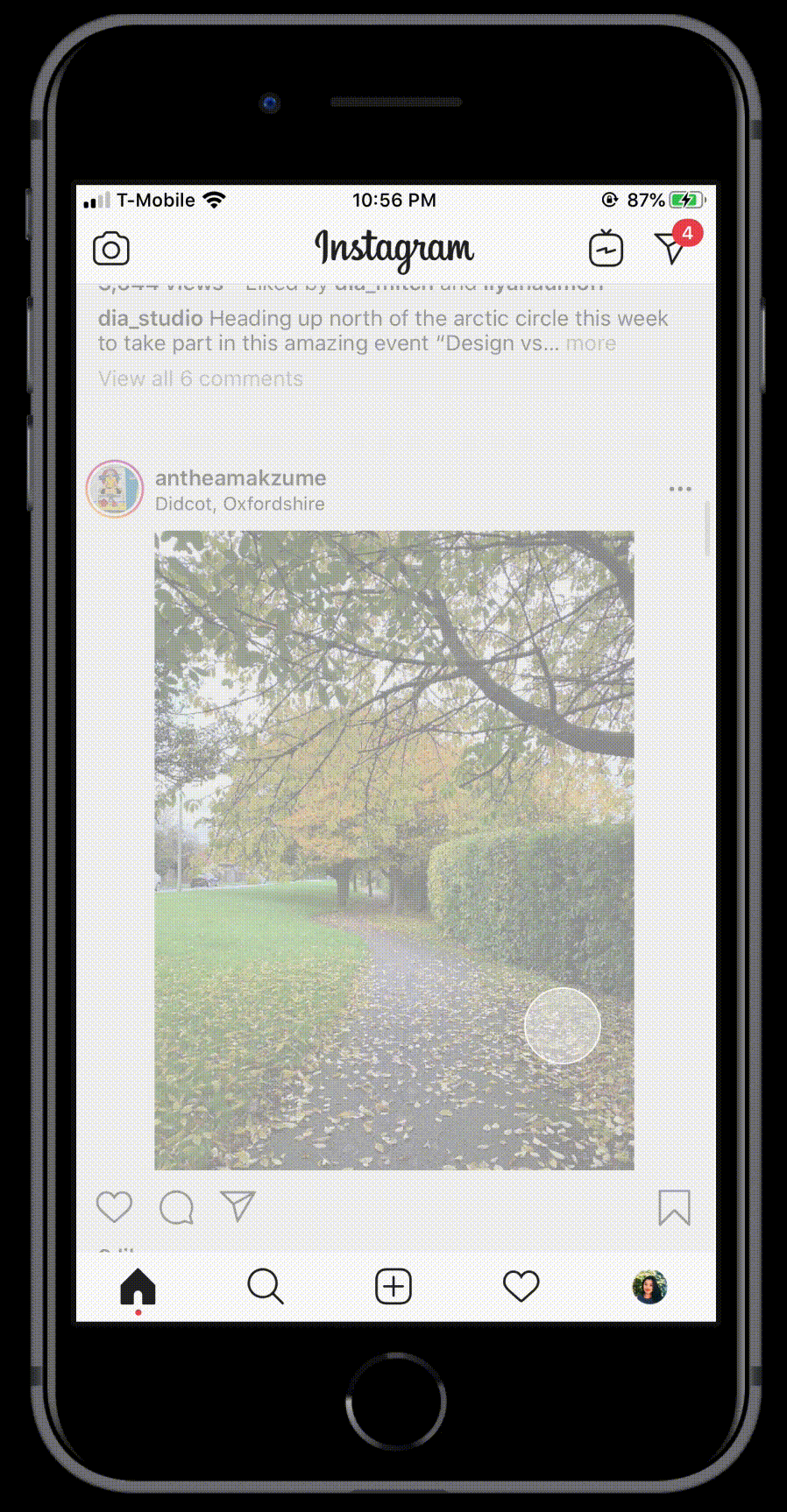
Scale

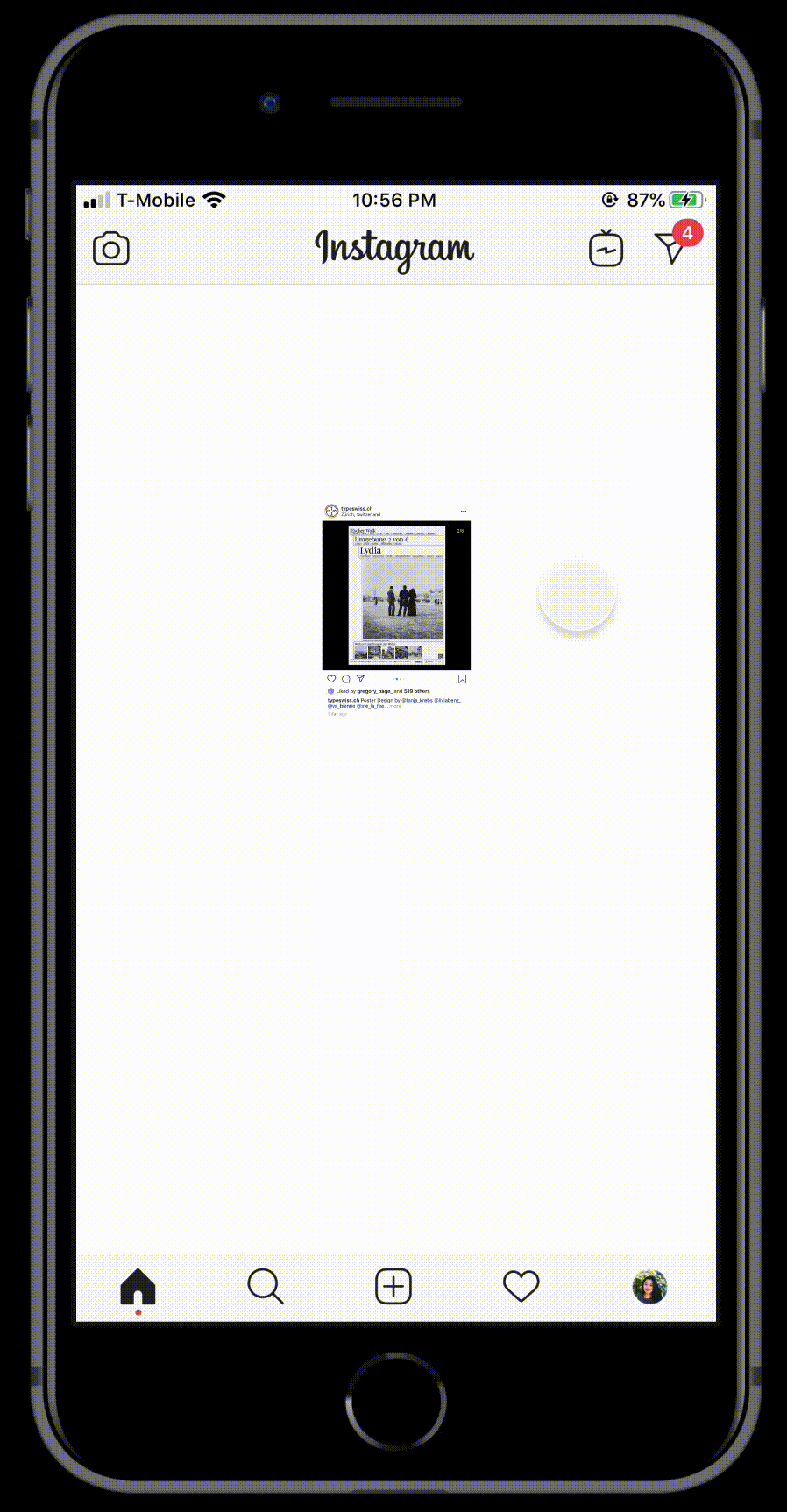
Learn more about your scroll
Are we aware of the sheer volume of content we consume daily? The truth is, we often don't realize it. We're inundated with an overwhelming amount of information, much more than we can meaningfully absorb. It's crucial to become conscious of our digital consumption. Understanding the quantity allows us to make informed decisions, perhaps even prompting us to go on a much-needed digital detox.
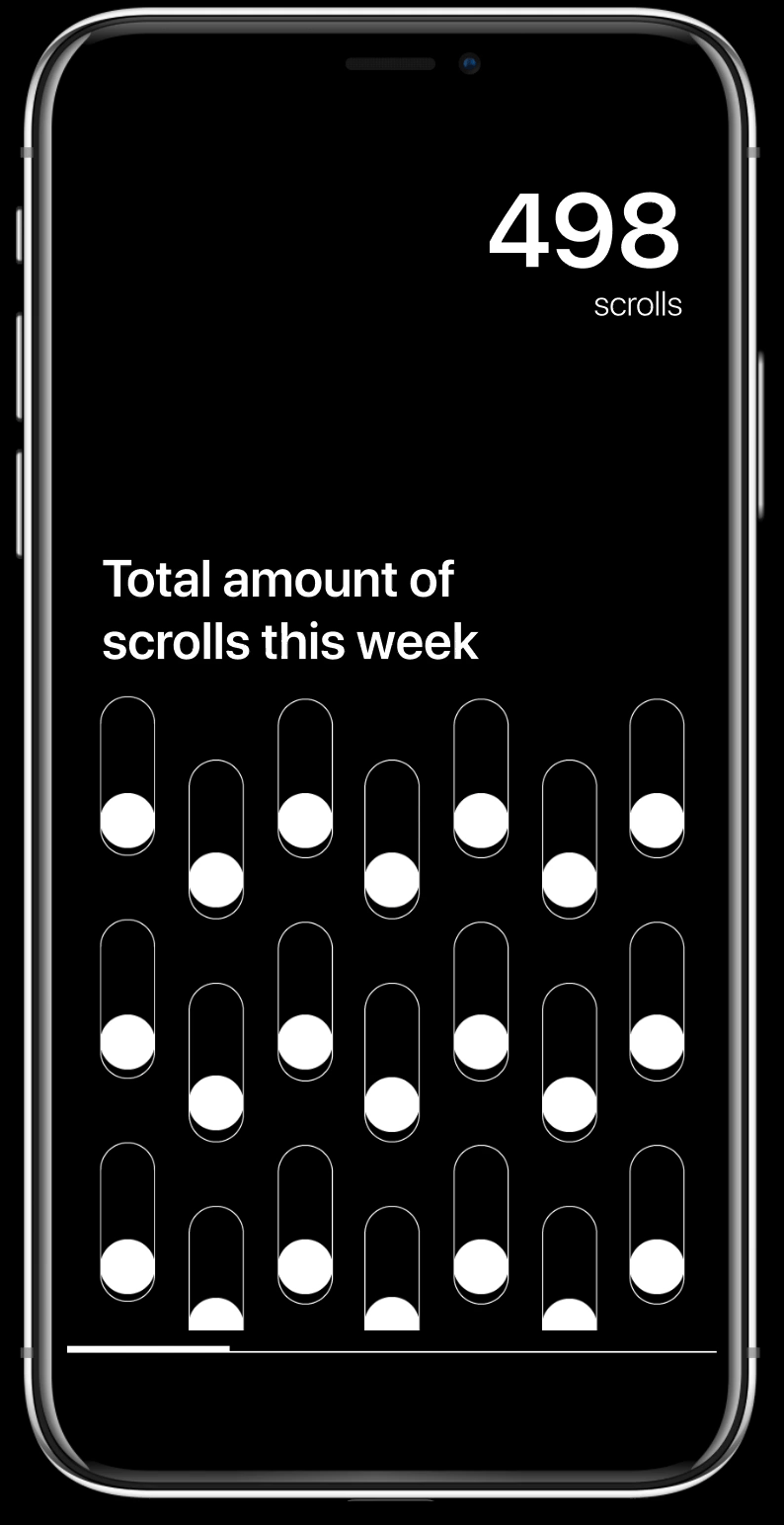

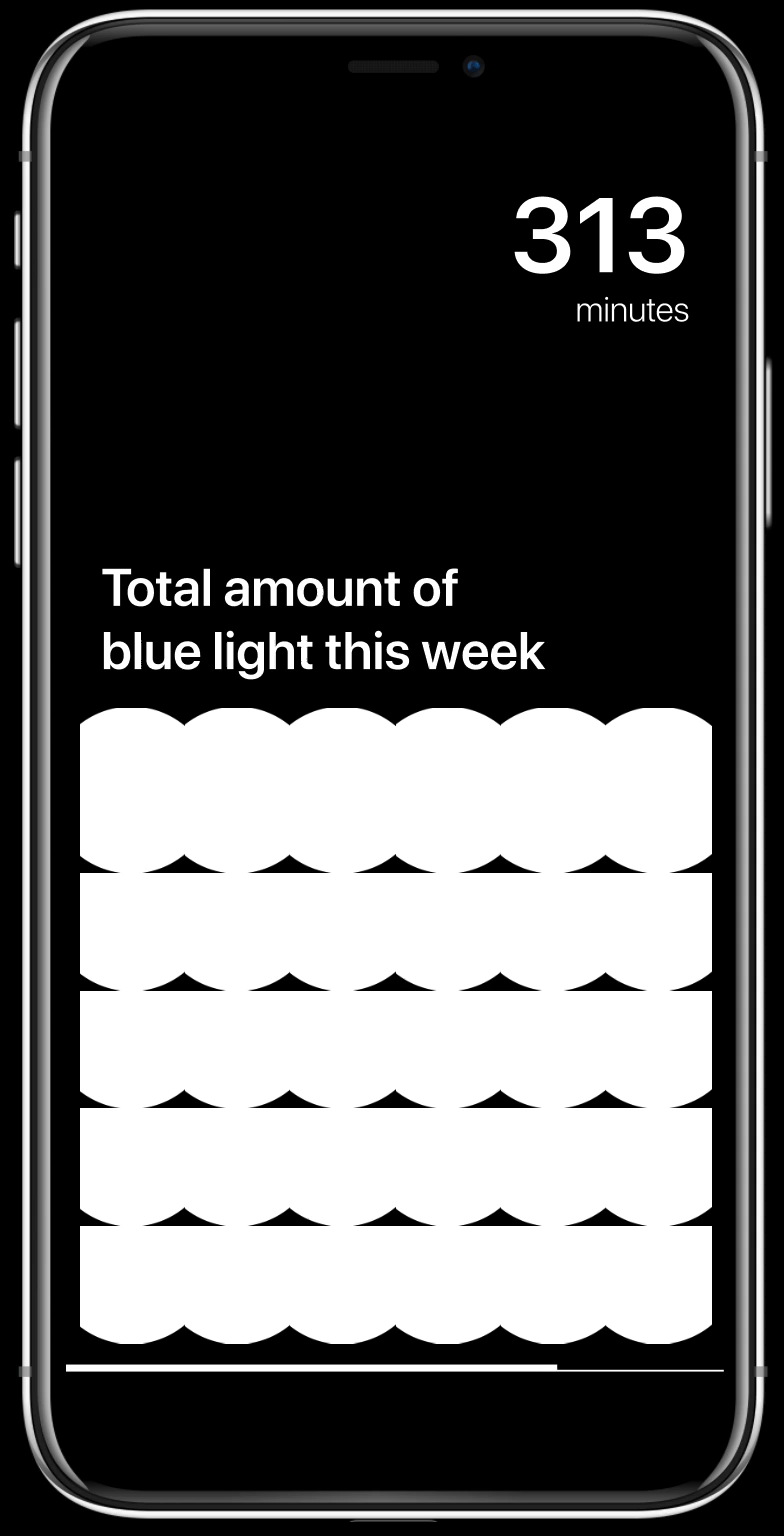
Some people are scrolling a greater distance on their mobile in a day than they walk.
Finite Scroll suggests other offline activities.
‘The typical phone screen is about 10 cm tall or 0.0001km. Research recently done at Gravity Road tracking mobile usage revealed that many of us of us are scrolling through more than 2 km of content a day - whilst much of the (physically able) UK manages to walk about only half this distance.’ Mark Eaves
BBC News - More than 20 million Britons 'physically inactive'
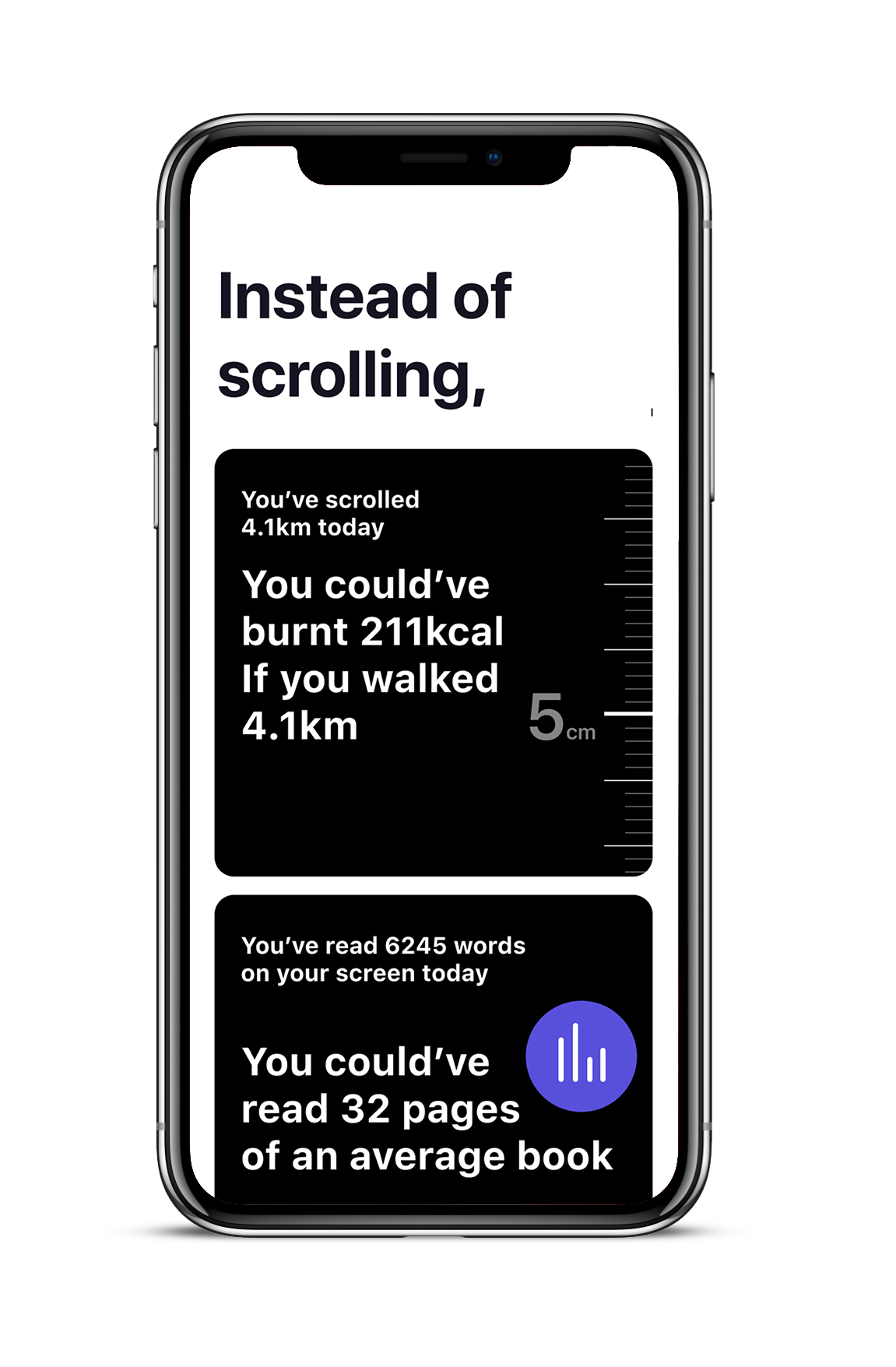
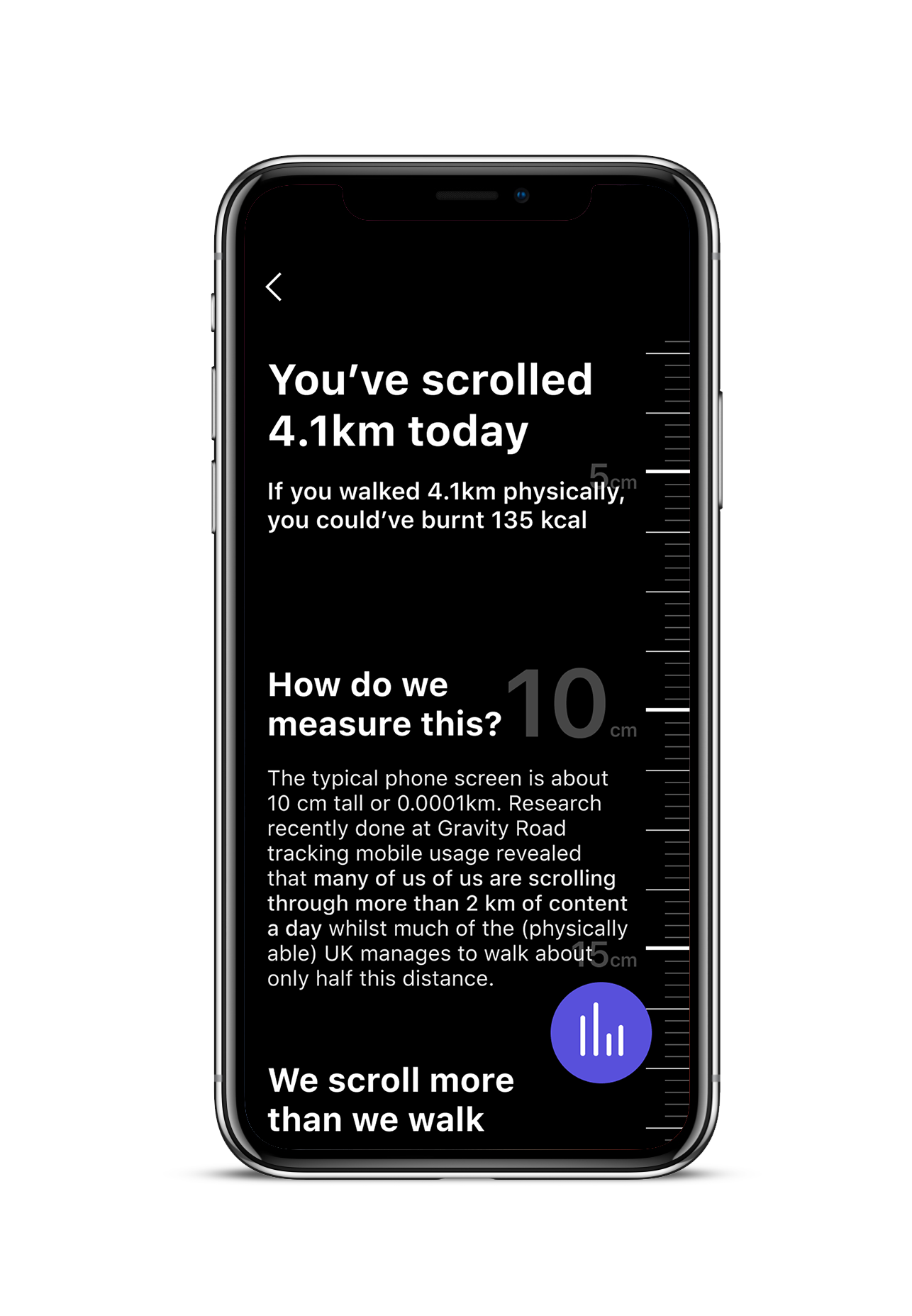
How it started
In today's digital age, social media has become the canvas for countless captivating videos and engaging content. Like many, I found myself drawn into this whirlwind, my screen time stealthily creeping up - I didn’t realise it because it was that subtle. Hours spent scrolling left me feeling drained, my mind clouded by an endless stream of content that ranged from trivial to mildly useful. This got me thinking: How does addiction begin?Unlike the glaring signs of alcohol, cigarettes, or drugs, this modern addiction seemed benign, almost harmless.
This non-stop mix of content, tailored just for me by an algorithm. Each new clip gives a quick thrill, making it easy to keep scrolling without much thought. I stumbled upon a startling revelation: some people scroll more than they walk in a day. It was an addiction that was impacting not just me but also the younger generation.
This insight made me think, ‘What do addicts do when they can't reach the source?’. They try even harder to get it, feel the pain of missing it, and deal with a deep emptiness. This made me realize we need these tough moments to truly understand something important – we're not using media, it's using us.
That's why I started this project. It's a commitment to change, a path to regain control over our digital habits. It's about recognizing our screen addiction and deliberately reducing it, step by step. This journey is about moving from endless scrolling to meaningful engagement with the world around us, about choosing to live each moment fully and consciously.

